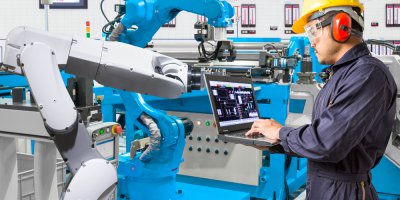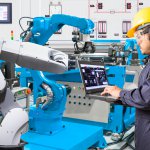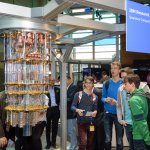
The emergence of IoT has allowed more devices to be connected to each other, making life simpler for many. Source: Shutterstock
How IoT propels a more connected world and why it matters
ONE of the key drivers of the digital transformation that the world is experiencing at the moment is the internet of things (IoT).
IoT is essentially devices connecting and communicating with each other, collecting and sharing data to execute specific functions or actions.
The market for IoT devices accelerated significantly in 2018, bringing the total estimated number of devices currently being connected to 7 billion, with a total value of US$151 billion.
It is expected to reach US$1567 billion in valuation by 2025, propelled by the emergence of 5G network slated to hit Asia and North America in the next three years.
Being connected
It has been envisioned that in the future, almost all everyday items will be connected to a network, enabling them to carry out crucial functions with minimal human supervision.
These devices range from simple household items such as internet-enabled CCTV cameras to sophisticated sensors that make autonomous vehicles possible. Even industrial manufacturing robots with AI and cognitive capabilities will be driven by IoT.
The explosion of AI-powered personal assistants such as Amazon Alexa and Google Home, along with other internet enabled home devices is also an indication that being connected is the new normal.
What was once considered science fiction is now a reality, all to make life and business easier.
Smarter phones
Phones have evolved significantly in the past decade or so, from making phone calls to replacing the role of a traditional home computer.
Smartphones have become more powerful with AI-enabled software backed by fast processors.
With high definition cameras, GPS tracking features, and advanced internet connection capabilities, future smartphones are set to propel an era of connectivity like never before, while at the same time enabling unprecedented levels of data sharing and data collection.
The exponential growth of data transmission and storage will naturally also lead to increased security measures and more advanced cloud storage system for optimal utilization of the data.
Robust and secure smartphones will then inevitably allow for the phones to control more than just our devices. Tomorrow’s smartphone camera could be used for biometrics verification to unlock or activate even more devices and appliances.
In a nutshell, a future with interconnected devices working in tandem over a shared network promises limitless potential.
And from the looks of it, IoT technology is set to disrupt the way humanity and businesses operate, in a significant way, while significantly impacting the evolution of other related technologies and devices along the way.
READ MORE
- Ethical AI: The renewed importance of safeguarding data and customer privacy in Generative AI applications
- How Japan balances AI-driven opportunities with cybersecurity needs
- Deploying SASE: Benchmarking your approach
- Insurance everywhere all at once: the digital transformation of the APAC insurance industry
- Google parent Alphabet eyes HubSpot: A potential acquisition shaping the future of CRM






